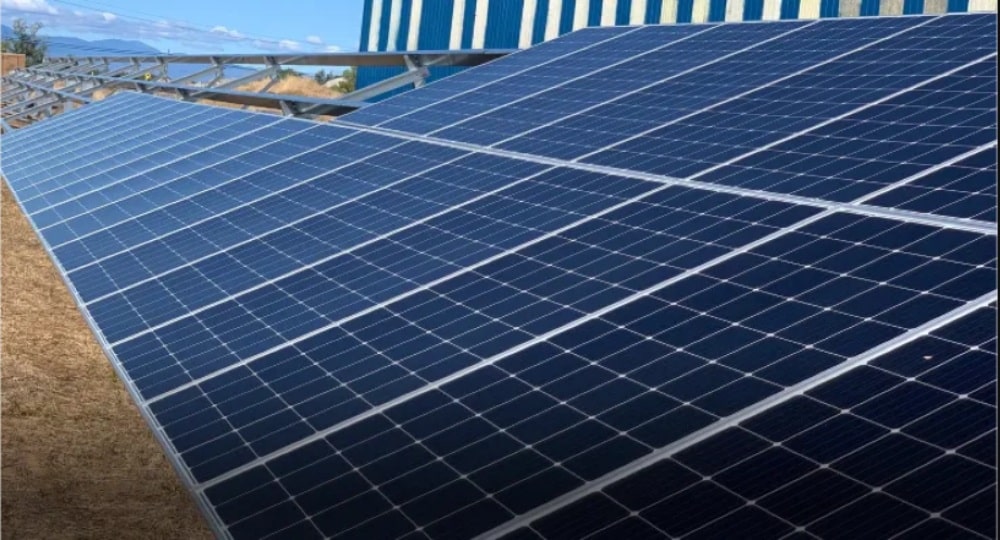Financing challenges, manufacturing uncertainty, and soaring data center demand dominated day one of the ACORE Finance Forum, but the biggest concern was political: proposed changes to the Inflation Reduction Act, described by one speaker as a potential “self-goal,” cast a shadow over an otherwise optimistic outlook for clean energy investment.
The talk at the American Council on Renewable Energy (ACORE) Finance Forum, held June 4 to 5 in New York City, was heavily focused on financing, energy demand growth, and potentially increasing pricing. But looming over the entire event was uncertainty around ongoing Inflation Reduction Act (IRA) negotiations in Washington D.C.
ACORE President Ray Long opened the forum with a clear message: “The Big Bill is bad; it’s a killing of the IRA, not a compromise.” He urged attendees to engage with lawmakers immediately.
The first panel, led by Ray Wood of Bank of America and featuring Stacey Kusters of Cubico Sustainable Investments and Ted Brandt of Marathon Capital, opened with a central question posed by Wood: How much new capacity is coming online, and can the grid keep up with the surging electricity demand driven by data centers?

Kusters said it was clear that meeting demand will require deploying an “all of the above” mix of resources. With 80 GW of projected load growth, continued retirements of coal and gas, and limited turbine supply, solar and storage are uniquely positioned to scale quickly. Price volatility is also pushing electricity values upward, affecting project finance models.
Brandt emphasized how much easier it is to finance solar and storage compared to nuclear:
“We’re working on an 800 MW nuclear power facility with a $10 billion price tag. First, the “at risk” capital before they know whether the project is approved is close to half a billion. And second, is that your solar and storage project gets in the ground fast, and starts generating revenue—revenue in 2027 versus possibly in 2035. It’s a huge difference.”
With the Special Purpose Acquisition Company (SPAC) market dried up since the early 2020s, financing has become more selective. Grade A projects still attract capital, but B deals require more effort, and grade C and D projects are being ignored.
Kusters said she visited Fluence Energy’s factory, which she considers a grade A facility, but found it still empty due to uncertainty around tariffs and the 45X manufacturing tax credit. She praised Qcells and JA Solar’s U.S. factories, but acknowledged that many others are in limbo.
Still, all three panelists agreed that regardless of what happens with the reconciliation bill, substantial infrastructure—with significant solar and storage included—will get built.

Corporate demand remains relentless
A subsequent panel featured corporate hyperscalers Google and Amazon, joined by Constellation Energy and CleanCapital, two companies that help supply their electricity needs.
Mike Kramer of Constellation Energy said the company recently signed a 20-year nuclear power purchase agreement with Meta, calling it a rare long-term deal in a market where most contracts last five years or fewer.
Amazon’s Craig Sundstrom took a defensive stance when asked whether solar and storage were cheaper than gas. Rather than addressing cost directly, he emphasized the need for immediate energy availability, saying Amazon’s customers demand 24/7 uptime and that its path to net zero by the 2040s would not be linear.
Will Conkling of Google reaffirmed the company’s goal of reaching its time-matched, 100% clean energy goals by 2030. But reality might mean they could come up 10% short, as many questions remain. Even Google, he noted, can’t simply will the solution into existence.

Jessica Johnson of CleanCapital noted that while conditions had recently shifted from a buyer’s to a seller’s market, conditions continue to evolve. She emphasized that greenhouse gas standards are changing, and that truly meeting clean energy goals requires a real-time understanding of local grid conditions, including what fuel sources are actually being burned.
Moderator Alan Neuhauser of Axios asked about the long-term viability of geothermal, the future of small modular reactors (SMRs), and whether carbon capture is realistic.
Panelists were unanimous in their skepticism of carbon capture, offering a consistent no. Conkling said modern geothermal units—referencing Google’s experience with Fervo energy—are significantly more durable than earlier generations and are expected to meet 20-year contract terms.
Sundstrom said Amazon has already committed hundreds of millions to the development of SMRs, noting that while writing the check may be the easy part, Amazon’s role as a customer, not a utility, makes such early-stage investments especially ambitious compared to most market participants.

Reconciliation and regulatory risk
While every session referenced the reconciliation bill, frequently acknowledging uncertainty about its final form, the afternoon panel focused squarely on the legislation and the broader dynamics shaping the current debate over the IRA. Panelists emphasized the critical need for consistent policy, warning that the ongoing instability is already slowing development and investment.
Seth Hanlon of the NYU Tax Law Center warned that the proposed IRA rollbacks could backfire, saying, “If this is supposed to be an attack on China, the way we’re doing it could be a self-goal”—a reference to when a team accidentally scores against itself in soccer.
Jeff Kupfer of ConservAmerica explained how the IRA became a political target:
The IRA and the processes that made it—and now its existence as the rhetorical punching bag—are sort of irrelevant of what’s in it. It doesn’t matter that there are more red jobs than blue. What matters is how it was signed, which everyone here knows was by Biden in a very partisan manner. Of course, it is the remnant of the Green New Deal. Then when Trump came back, it got attacked as the Green New Scam.
Mark Prater, formerly with the Treasury Department and now with PwC, noted how policy framing shifts based on which party signs legislation, regardless of who benefits.
Despite the sharp critiques, the panel closed on a hopeful note. Most speakers expected that Senate negotiations would ultimately pull back from some of the more extreme provisions in the bill, such as the 60-day start requirement and restrictions related to Foreign Entities of Concern (FEOCs).




